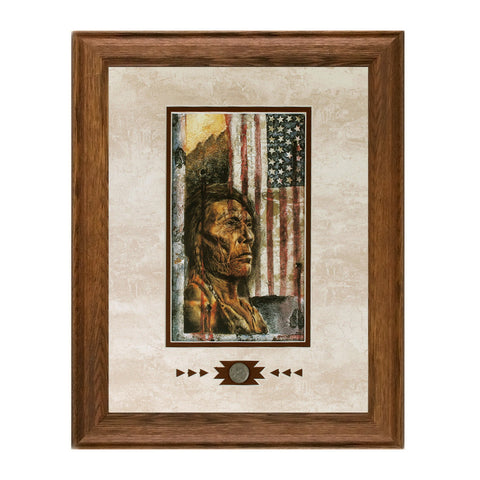When Colors Bleed II
In the autumn of 1868, Black Kettle, a southern Cheyenne peace chief, established for his people a village along the Washita River, which was near the Antelope Hills of Oklahoma. Within two months of settling there, rumors circulated of US soldiers approaching his encampment. Fearing for his people's safety, Black Kettle and Little Robe, along with two Arapaho leaders, journeyed 100 miles down the valley of Washita to Fort Cobb, which were the Cheyenne and Arapaho Agency headquarters. There, Indian Agents gave provisions to whose who had surrendered, considering them "old, young, and feeble", while US troops rallied against their elusive warriors.
Upon arrival, they met with General William B. Hazen, asking him permission to move their people and lodges to the fort for protection. Hazen refused but promised Black Kettle if he returned to his village and controlled his aggressive young warriors, this people would not be attacked. However, Black Kettle was unaware of the war plans of General Sheridan, which were to send General Custer and his pony soldiers to destroy the villages of the "savage" Indians in that area, most of whom kept their treaty obligations.
Braving treacherous winter conditions, Black Kettle returned to his village and called a council of the tribe's leaders warning them not to be caught off guard like they had been four years earlier at Sand Creek. A decision was made that the snowfall subsided, Black Kettle would take a delegation to head off the soldiers, attempting to convince them that his Cheyenne were peaceful.
The next morning, November 27, 1868, just before dawn, Black Kettle stepped outside his lodge when suddenly he heard a woman crying "Soldiers! Soldiers! Black Kettle immediately grabbed his rifle and fired it into the sky, urgently shouting commands. Realizing that his only hope was to meet General Custer and his soldiers in their charge, Black Kettle, along with his wife, mounted his horse and headed towards them. As they came to a halt, Black Kettle lifted his hand in a sign of peace. His gesture to deter this senseless massacre only served to claim two more casualties, as they were mercilessly shot to death.
The Cheyenne will always remember Washita . . .

